The 20 Year Photo
The first time I picked up an SLR camera was some time in early 1995. To this day I can't really explain what drew me to photography, but I think it has to do with the intersection between art and technology. I was fascinated at how this bulky metal box stuffed with a mirror, prism, mechanical shutter, and a little strip of 35mm film could produce what I was seeing in National Geographic. During my freshman year in High School I took Intro to Photography which to this day is the extent of my formal education in the field.
I immediately loved it, I was shooting as much as I could while trying not to go broke buying roll after roll of 35mm film. In 1998 my dad purchased a Sony Digital camera that literally used 3.5" floppy discs in the back, which held about 10 photos. Between then and 2003 I used a few different digital cameras but never felt as comfortable as I did with that beat up old Nikon film SLR.
The path to mastery
In 2003 I purchased a brand new Canon EOS 10D Digital SLR and I was on top of the world. The problem was that my ambitions were far ahead of my skill level. I was aware of it, but not consciously. I wanted to take amazing photos and be able to share them, and I was getting frustrated at the disconnect between what I had in my head and what was shoing up on the back of the camera. I knew it would take hard work, but I couldn't grasp how much. At some point I came across this quote by Ira Glass which stopped me in my tracks:
"You've got to get rid of a lot of crap before you're going to get anything that's special. You don't want to be making mediocre stuff. There's a gap for the first couple years that you're making stuff. What you're making isn't so good. But your taste, the thing that got you into the game, is good enough that you can tell what you're making is kind of a disappointment to you. A lot of people at that point, they quit. The thing I would say to you with all my heart is that most everybody I know who does interesting, creative work, went through a phase of years where they had really good taste, they could tell what they were making wasn't as good as they wanted it to be. They knew it fell short. Everybody goes through that. If you're going through it right now, or if you're just starting off and you're entering into that phase, you've got to know its totally normal and the most important thing you could do is a lot of work. Do a huge volume of work because it's only by actually going through a volume of work that you're actually going to catch up and close that gap."
- Ira Glass
That was exactly where I was. I knew what I wanted to do, I had clear visions in my head of the photos I wanted to take but I wasn't there yet. I would look at my portfolio and know it was mediocre at best, but that didn't stop me, I didn't give up. Being a card-carrying geek I heard that there was going to be a lunar eclipse, so I knew it would be a great opportunity, so I grabbed my tripod & telephoto lens and headed out to see what I could get.
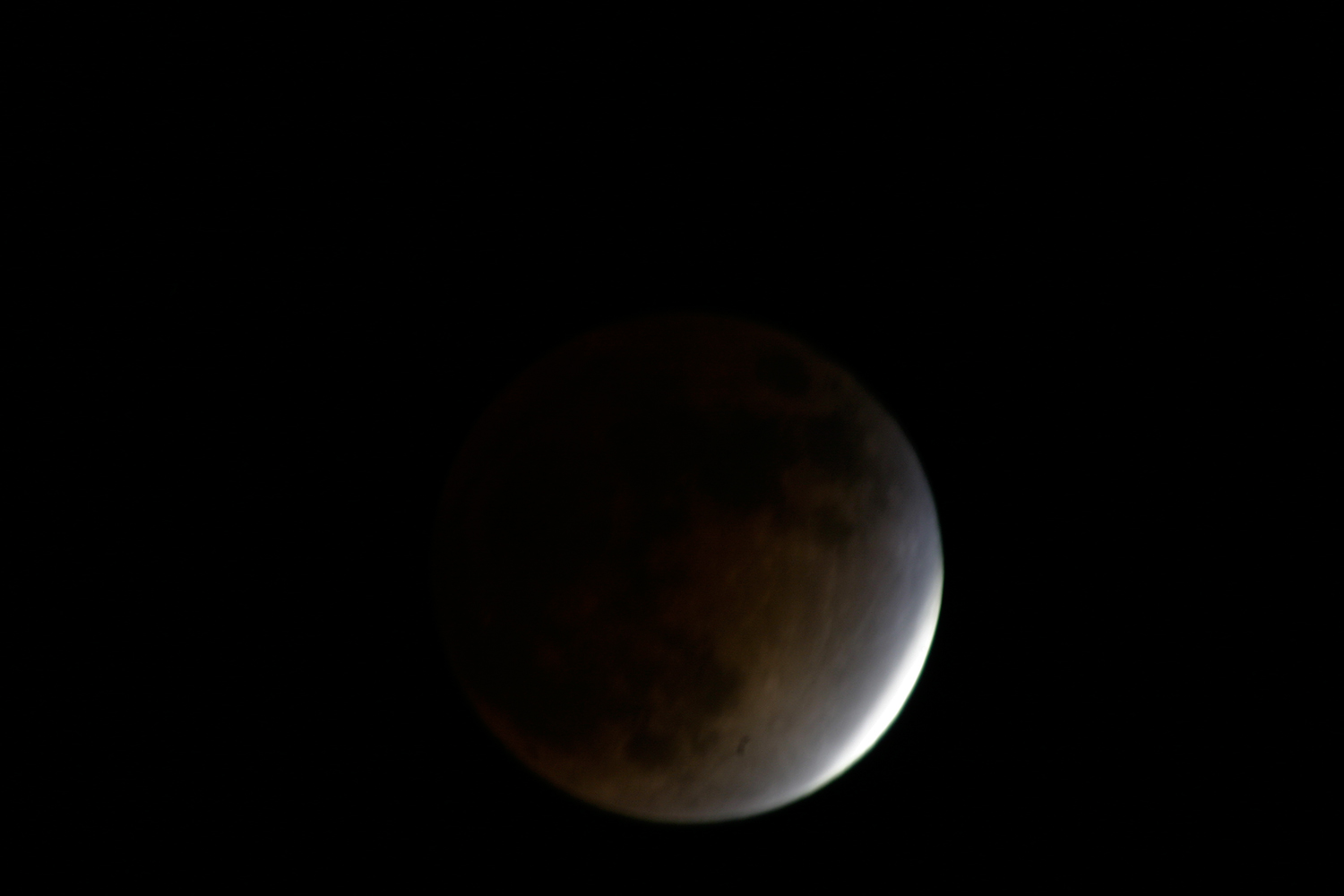
I was so disappointed with the results I was almost defeated. Everything was blurry, I couldn't get the exposure balanced correctly, it wasn't in focus, I had so many problems and why? I just spent a ton of money, this should look like it belongs on the cover of Astronomy Magazine right? I was using the same tools as the pros, but I didn't know how to get the same results. I was somewhat aware of things I needed to learn, but there was a wealth of information I didn't know was even out there.
Practice, practice, practice
I kept pushing myself to try again, learning different techniques, bringing my camera everywhere I went, and challenging myself to get better. Slowly I progressed and over time I started to improve. Sometimes I would take a photograph that would make me stop and say 'yes, thats what I envisioned when I pressed the shutter button'. I found the ratio of bad shots to good shots became less and less.
Ansel Adams is arguably the greatest landscape photographer of all time, and he said this about his work:
Twelve significant photographs in any one year is a good crop.
I personally feel this is a pretty good target to hit. This may seem like nothing in todays digital age where everyone has an Instagram account with more pictures of their lunch than Adams ever put on film in his lifetime, but I think it holds true when talking about creating art, not just snapping photos.
Reflection
Periodically I look back to see the progress I have made, I save every shot I take specifically for this reason. I can pull up photos tagged with 'moon' and see the quality improving over the years. After a few more attempts, here is a shot of a waxing gibbous moon from 2007.
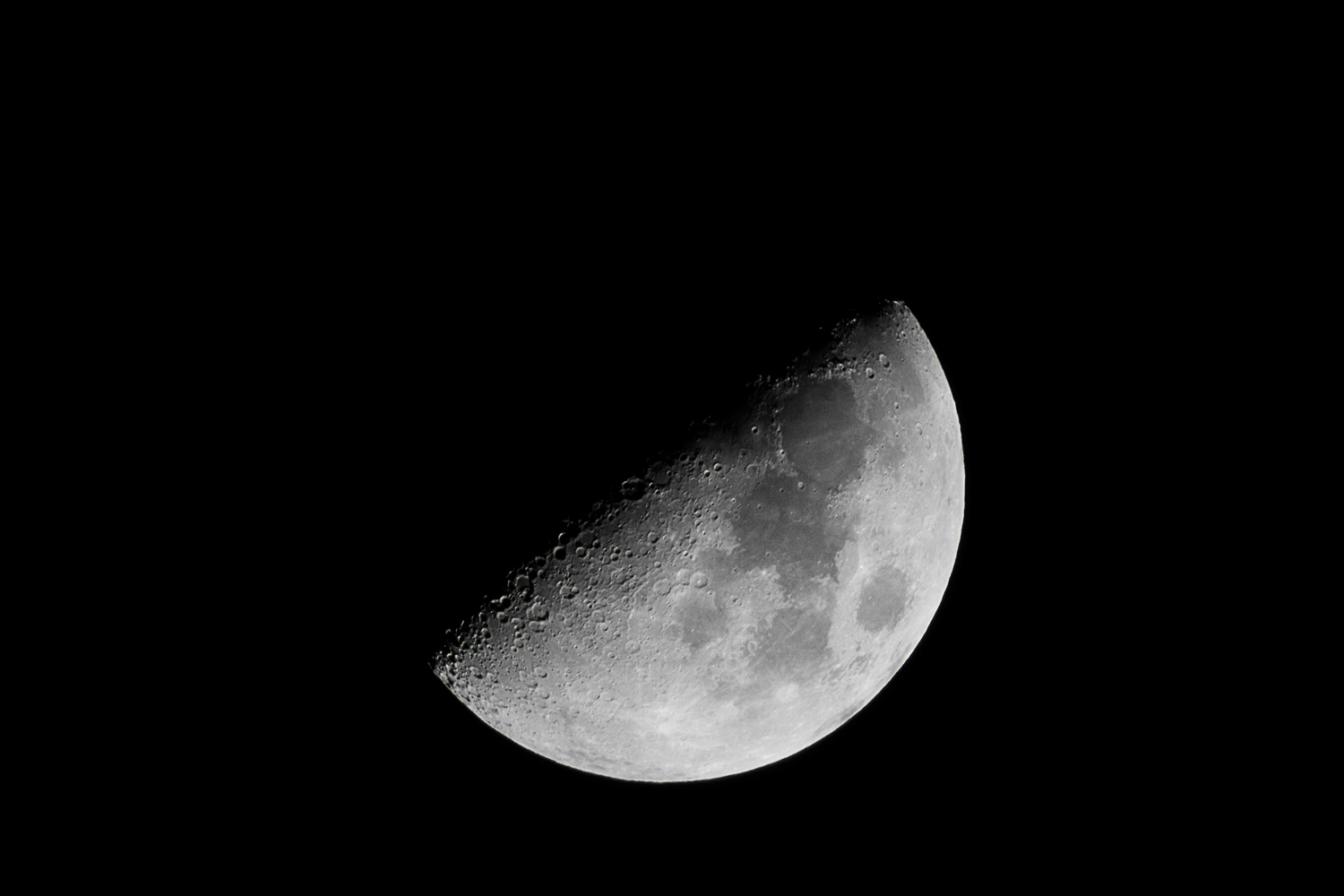
Over the course of four years I had improved remarkably but it was almost impossible to realize in real time. I learned how to focus manually in the dark, how to lock the mirror up to avoid shaking the exposure, how to properly stabilize my tripod, and numerous other techniques that all combined to create a wonderful photograph.
The master has failed more times than the beginner has even tried. - Stephen McCraine
In the beginning I would probably get 1 good photo from 100 shots. This day I am happy with 1 in 50 to be honest. It's not just technical mistakes - it can be clipping a subject or bad framing, choosing the wrong viewpoint, shooting at the wrong time of day, or simply missing some detail in the photo. I don't just take photos, it takes effort to make a photograph.
Although sometimes it takes a bit of luck, and in this case, a ton of it.
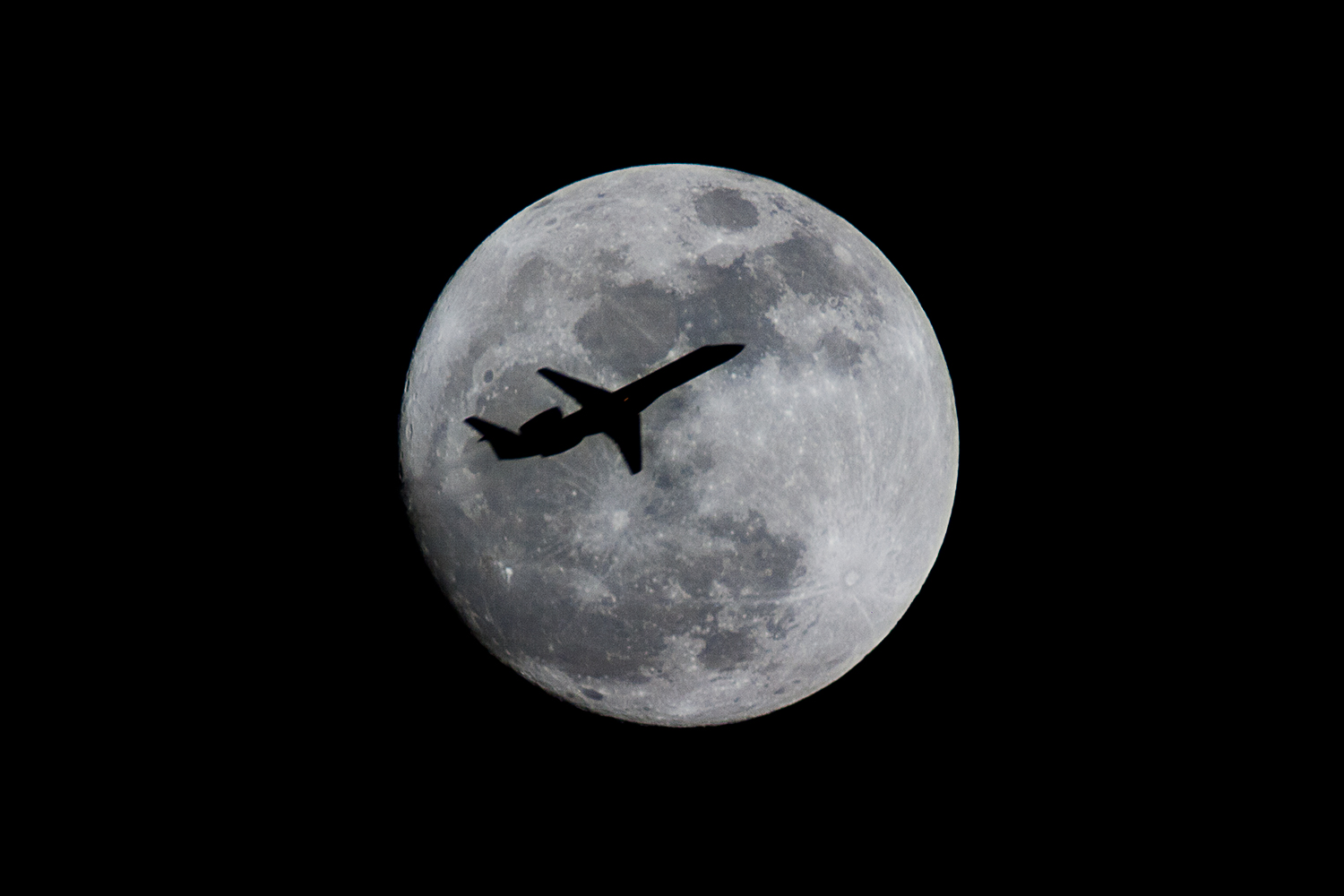
However, most of the time its preparation, knowledge, and execution. When I heard that there would be another lunar eclipse in a week I knew I had an opportunity to take the photo I had wanted to take since I first picked up that old Nikon. I looked back at all my previous astrophotography shots to see what worked so far and what didn't. I read some materials to refresh myself on the exact techniques, and most importantly I went out the night before to practice.

Not only could I take the photo I wanted to take in 2003, more importantly I could take a stacked progression of the eclipse that wasn't even a thought back then. This time I was ready. Since I had gone out the night before to practice I had a good starting point, slowly adjusting my exposures over the three hour event. I took my time, I wasn't rushed or panicked, I was prepared. Here is probably the most difficult shot of the bunch, the eclipse at it's apex.
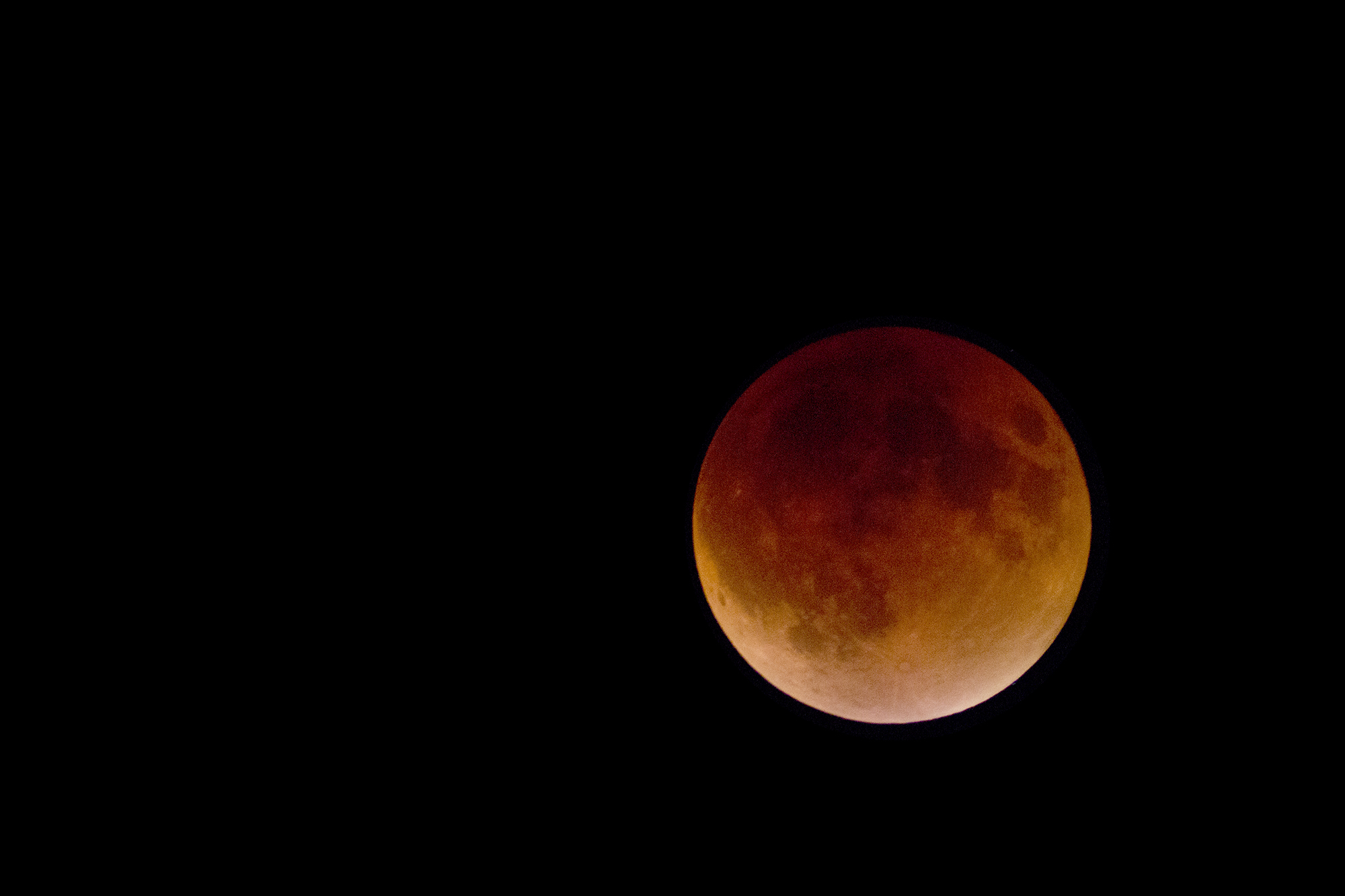
After selecting a good set of exposures I was able to make a 10 shot progression of (nearly) the entire eclipse. The clouds parted just after I started and rolled in just before it ended, but it was enough of a window to get the majority of it. I sent over the order to the printer last night, so in a few days I should have a few 40" by 10" prints ready to frame, one for myself and a couple to sell. I can't wait to see them in such a large format.
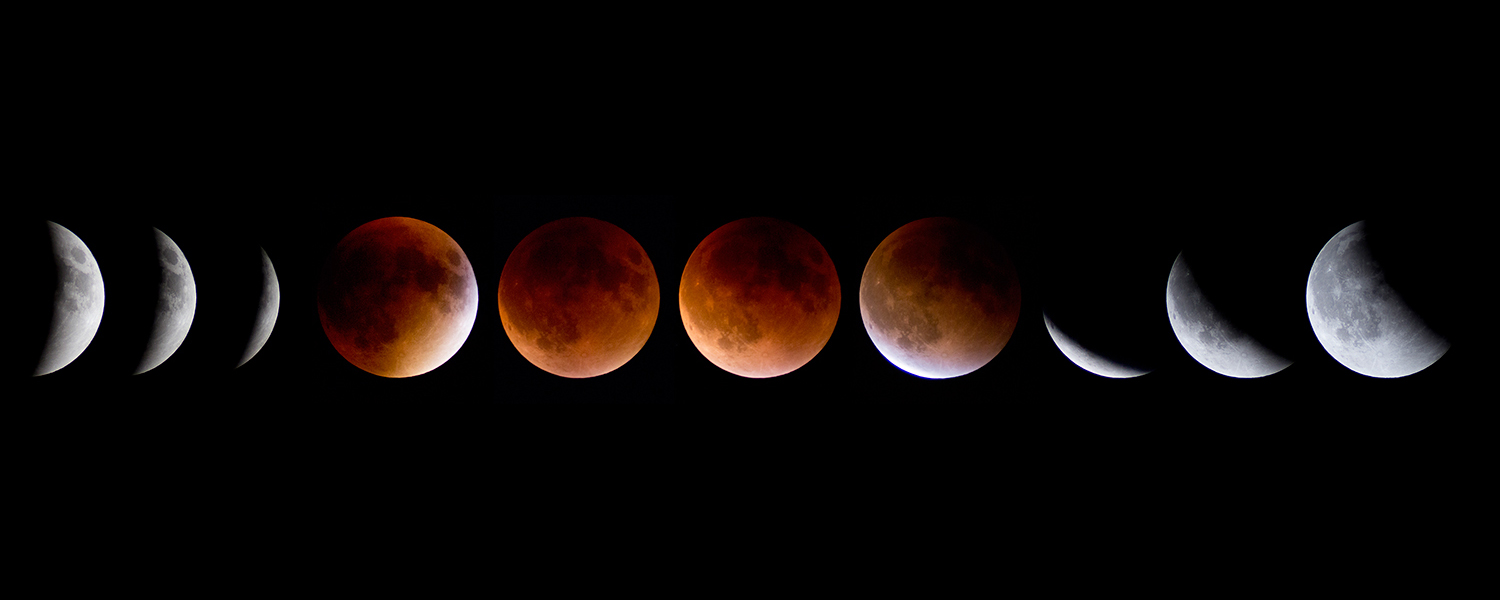
"...it took me my entire life."
Legend has it that Pablo Picasso was sketching in the park when a bold woman approached him.
"It’s you — Picasso, the great artist! Oh, you must sketch my portrait! I insist."
So Picasso agreed to sketch her. After studying her for a moment, he used a single pencil stroke to create her portrait. He handed the women his work of art.
"It’s perfect!" she gushed. "You managed to capture my essence with one stroke, in one moment. Thank you! How much do I owe you?"
"Five thousand dollars," the artist replied.
"But, what?" the woman sputtered. "How could you want so much money for this picture? It only took you a second to draw it!"
To which Picasso responded, "Madame, it took me my entire life."
I don't feel as I am a master photographer yet, and am in no way comparing myself to Picasso, but I really like that quote. The lunar eclipse progression I took on September 27th 2015 technically only took me fractions of a second for each frame to make, but in reality it took 20 years of hard work, many failures, even more learning, reading, patience, and practice to create.